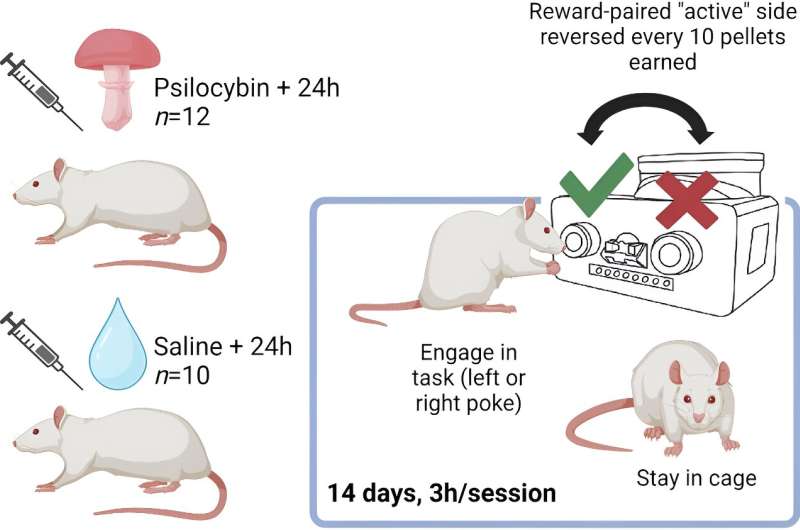Researchers at Monash University have made a breakthrough in studying the effects of the psychedelic compound psilocybin on rats, suggesting it may lead to increased optimism and improved engagement – insights that could have significant implications for treating depression and other mental health conditions. The study, published in Translational Psychiatry, used computational modeling to demonstrate that rats given psilocybin displayed long-lasting, optimistic behavior when performing reward-based tasks.

Unlocking the Mechanisms of Psilocybin’s Therapeutic Potential
The study, led by Monash Ph.D. candidate Elizabeth (Beth) Fisher, in collaboration with Professor Jakob Hohwy and Dr. Claire Foldi, sheds light on how psilocybin, a psychedelic compound found in magic mushrooms, may help address the core symptoms of major depression and other conditions characterized by reduced engagement and withdrawal.
Professor Hohwy explains the significance of the findings: “Our team found that rats given psilocybin were more motivated to explore their environment and perform reward-based tasks. These exciting results show the mechanisms of how psilocybin may work to increase optimism in an animal model, which we hope may translate to humans as well.”
Potential Implications for Psychedelic Therapies
The study’s findings suggest that psilocybin may have the potential to help individuals struggling with depression and other mental health issues by increasing their optimism and engagement with the world around them.
As Fisher notes, “Insights into the mechanisms of psilocybin allow us to unpack who may benefit from psychedelic therapies as well as who these treatments may not be beneficial for. With many people around the world affected by depression, our ultimate goal is to help build understanding of how psilocybin might be used to treat core symptoms people experience, such as diminished optimism, apathy and withdrawal from the world around them.”
Bridging the Gap from Animal Studies to Human Trials
While the results of this rat study are promising, the researchers acknowledge the need for further confirmation in human studies. “This study should motivate confirmation of these effects in human studies,” Fisher said, underscoring the importance of bridging the gap between animal research and clinical trials.
As the scientific community continues to explore the potential of psychedelics to treat mental health conditions, studies like this one at Monash University are crucial in advancing our understanding of the underlying mechanisms and paving the way for more effective and tailored therapies. The hope is that these findings will inspire further research and, ultimately, improved outcomes for those struggling with depression and related disorders.
